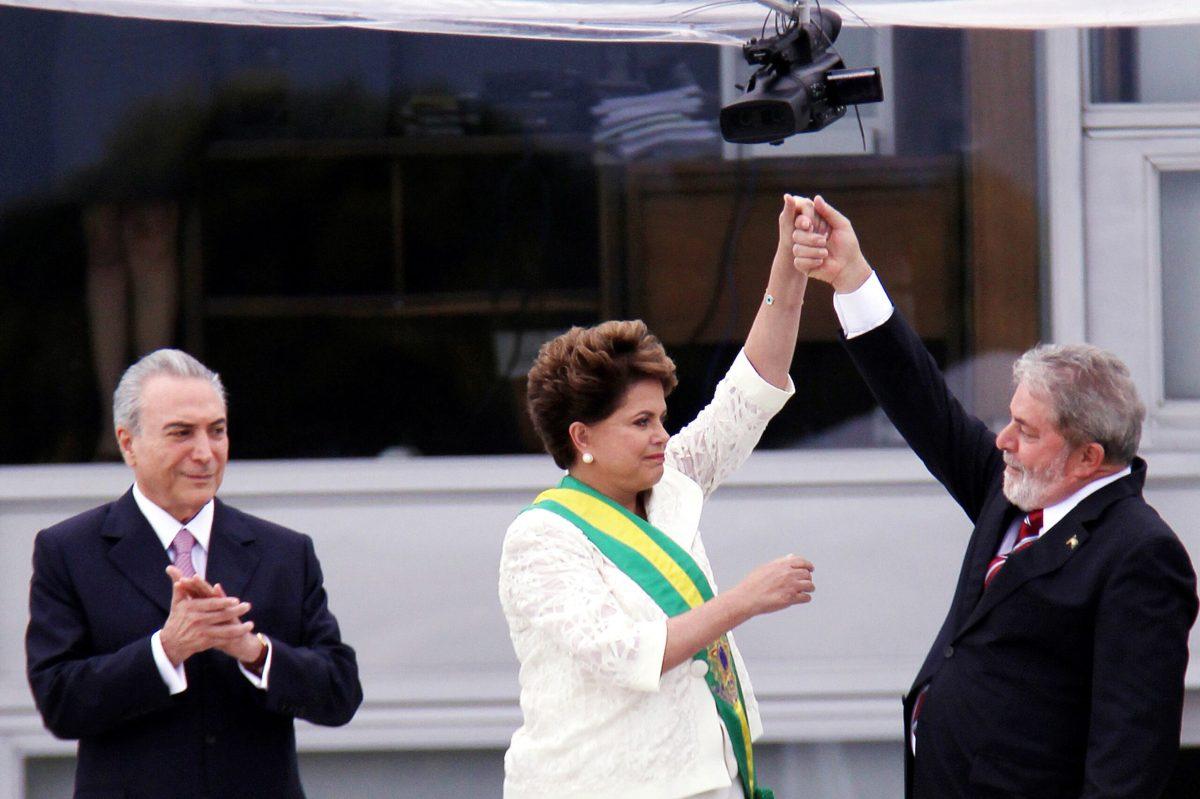
_This article contains spoilers for “The Edge of Democracy.”_
Petra Costa’s parents were both arrested in the ‘70s for fighting against the dictatorship in Brazil. Now that her country has moved on from that government, the director explains how Brazil is slowly going back to its old habits in her documentary “The Edge of Democracy.”
The story of a newfound and possibly short-lived form of government is told by the personal lenses of Costa, public archives and footage from the ex-president’s personal photographer. During the film, the director gives the story progression by comparing it to her own personal life, from massive protests in 2015, to impeaching the president in 2016 and electing a new and controversial one in 2018.
“I wondered how I could tell this story,” Costa said during the Q&A after the screening of the film. “I immediately thought, ‘I am the same age as the Brazilian democracy, and I felt that in our 30s we would both be standing on solid ground.’ I also felt that was a sensation that was resonating with many people around the world. I wonder if any of you felt that in 2016?”
For MU graduate student Megan Clark, the personal aspect of the film made all the difference.
“I really enjoyed that it was Costa’s personal story tied into it,” Clark said. “It’s obviously a story that could probably be told a million different ways, but that aspect made it feel very personal for people who haven’t lived it.”
The Q&A session that followed the first True/False screening of the film was composed mainly of people thanking the director for helping them understand what’s been happening in Brazil. Among those people was Lidia Freire, a Brazilian Columbia College freshman.
“She stated the facts and didn’t omit anything,” Freire said. “I was reading paper after paper and couldn’t understand what was happening back home. I think she explained things in a clearer way than the media, that’s why people in Brazil also have a hard time making sense of what happened. The way she explained it was wonderful.“
When addressing how media has been approaching the government situation in her country, Costa also mentioned how the people first responded to protests against the administration in 2015 and of course, how she saw it.
“As soon as those protests burst in Brazil, there was a feeling that something massive was going to happen,” Costa said. “We started to film with the urgency of just documenting. It was very shocking. I had been making very personal films, and that day when I went down the street, to that protest, and I saw something I had never seen before. Hundreds of thousands of Brazilians dressed in the colors of the flag, many of them asking for the return of the military dictatorship, some asking for the return of the monarchy, and just a general level of hate.”
For some in the audience, this was not news. For others, it was a brand new look on Brazil’s political situation, like for MU senior Viola Lyu.
“I just feel like democracy is really hard for Brazilian people,” Lyu said. “At the end of the film I felt like I just needed a fresh air. For one second everyone was celebrating the election, and then suddenly they were back to protesting. We can’t vote in China, so I had never really thought about it.”
The documentary sparked different reactions from different people in the audience, but the film hasn’t yet premiered in its home country.
“The film will premiere on Netflix all over the world, including Brazil, in the early summer,” Costa said. “So I’m very glad that many people will be able to watch it. I hope the film can spark a deeper dialogue about democracy and rule of law. I think Brazilian society has never been as divided as it is now, and the different parts are not speaking to each other, they’re not speaking a common language. I would like to see people discussing the importance of being vigilant of our democracy at a moment where it is in very deep danger.”
“The Edge of Democracy” is one of the three Brazilian films by female directors in True/False. “Let It Burn” by Maíra Bühler and “Landless” by Camila Freitas also approach social and political issues in Brazil from local lenses.
_Edited by Joe Cross | [email protected]_